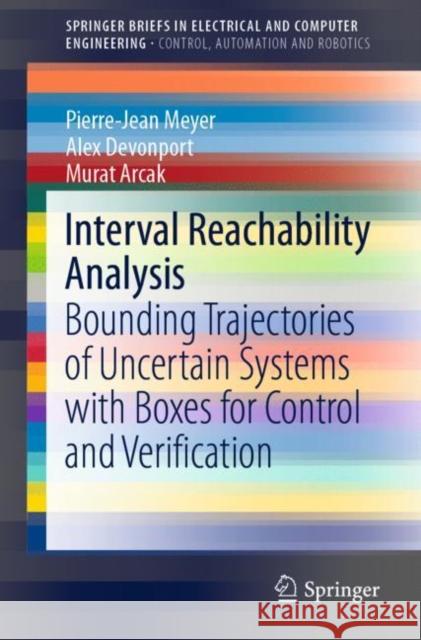Interval Reachability Analysis: Bounding Trajectories of Uncertain Systems with Boxes for Control and Verification » książka
topmenu
Interval Reachability Analysis: Bounding Trajectories of Uncertain Systems with Boxes for Control and Verification
ISBN-13: 9783030651091 / Angielski / Miękka / 2021 / 112 str.
Interval Reachability Analysis: Bounding Trajectories of Uncertain Systems with Boxes for Control and Verification
ISBN-13: 9783030651091 / Angielski / Miękka / 2021 / 112 str.
cena 261,63
(netto: 249,17 VAT: 5%)
Najniższa cena z 30 dni: 250,57
(netto: 249,17 VAT: 5%)
Najniższa cena z 30 dni: 250,57
Termin realizacji zamówienia:
ok. 16-18 dni roboczych.
ok. 16-18 dni roboczych.
Darmowa dostawa!
Kategorie:
Kategorie BISAC:
Wydawca:
Springer
Język:
Angielski
ISBN-13:
9783030651091
Rok wydania:
2021
Wydanie:
2021
Ilość stron:
112
Waga:
0.18 kg
Wymiary:
23.39 x 15.6 x 0.66
Oprawa:
Miękka
Wolumenów:
01
Dodatkowe informacje:
Wydanie ilustrowane











